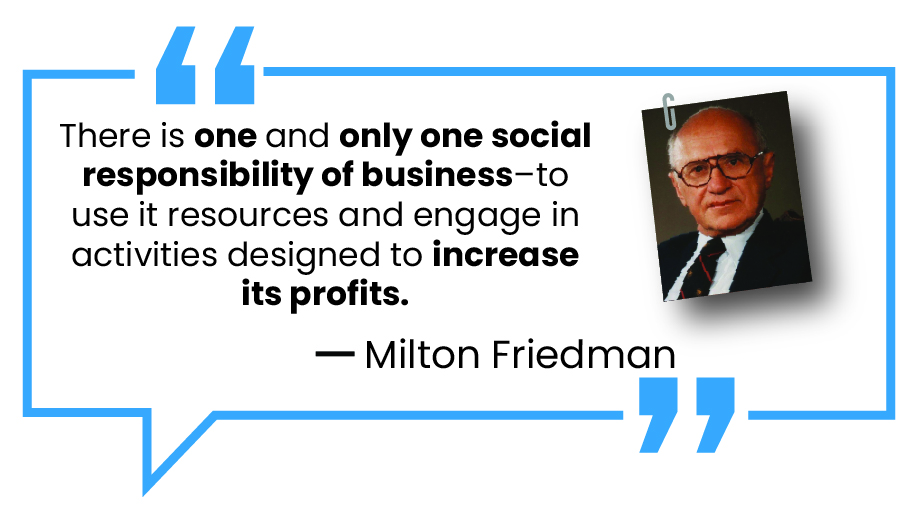
Introduction
Microsoft announced the layoff of 3% of its global workforce, impacting thousands of employees across all levels, teams and geographies. Along with this, Google, Amazon, IBM, etc., have been on a layoff spree impacting around 60,000 global workforce.
Such measures were largely necessitated due to AI- driven re-organisation and to remove the unnecessary layers of management. Mass layoffs or downsizing have a far-reaching implication not just for the employees but for the entire society prompting its ethical analysis.
Automation, Mergers and Acquisitions, Job Outsourcing, etc. are key driving factors for such downsizing.
The downsizing which is aimed at productivity, profits, competitiveness, etc. is being seen as contradictory to Business Ethics
About Business Ethics
- Meaning: It is a crucial dimension of the modern corporate culture guiding individuals, firms, and business enterprises.
- Features: Set of principles and values like trust-building, equitable competition, integrity, legality, corporate governance, and personal moral development, etc.
- Nature: It does not adhere to statutory and regulatory requirements, and is characterized by moral rectitude, and a commitment to societal well-being.
- Guided by the elements of Virtue Ethics (positive traits that guides the actions of the individuals).
- E.g., Companies like Infosys have come up with a Code of Conduct and Ethics to guide good judgement in business.
Responsibility of a Business towards various stakeholders:
Employees |
|
Consumers |
|
Society |
|
Ethical Dilemmas involved in Business Downsizing
- Utilitarianism Vs Kantian Capitalism: The utilitarian approach considers downsizing as the least harmful option to avoid bankruptcy (Greatest Good for the Greatest Number).
- However, Kant's idea of moral firm does not favour treating employee as an means (through layoff) to achieve an end (stakeholder interests, profit, etc.).
- Individualism Vs Corporate Social Responsibility (CSR): The primary goal of a company is to maximize profits that justifies downsizing (Individualist view).
- Downsizing impacts the CSR imperative that demands goodwill for the people in the community including their employees.
- Deontological Vs Teleological Perspective: Deontological Approach to businesses offers moral duty to guide actions transcending mere gain and profit maximization.
- Consequential or Teleological approach focuses only on the good outcome of an action.
- Ethical Relativism Vs Universalisation of Justice: While ethical relativism rules out the existence of any right set of principles applicable to all, justice demands fairness for all without any discrimination.
Way Forward on dealing with Business Downsizing
- Measure of Last Resort: Business Management should first explore alternative options like reducing marketing spend, cutting travel costs, freeze on hiring, etc.
- Companies should also evaluate the consequences of downsizing, i.e., its impact on the local unemployment rate, existing organisational culture, etc.
- Voluntary Layoffs: A strategy to let employees accept voluntary layoffs in exchange of attractive severance packages or giving them the opportunity to transfer skills to a new career.
- Upholding Business Code of Conduct and Ethics: Imbibing values of integrity, honesty, transparency, compassion, etc., ensuring they guide the business environment.
- E.g., Howard Schultz (Former CEO, Starbucks) offered health insurance to eligible full- and part-time workers, including all domestic partners of employees in 1988.
- Agile Talent Strategy: Companies can bolster the long-term career prospects of employees by investing in ongoing career development and a culture of continuous learning.
- E.g., Companies like Amazon offer 'Education as a Benefit Programme' to its employees offering them career growth.
- Aiding Displaced workers: Proactively help terminated workers find new meaningful employment by leveraging community colleges, alumni networks, etc.
- Nokia's Bridge Programme helped 60% of its employees laid off in 2014.
Conclusion
Before going for a large scale downsizing, there is a need for the management to hard look at all other possible options. Further, there is a need to upskill the employees on the future technologies that would also help in the future growth of the company. Along with this, instilling a culture of habitual inclination towards good business conduct and practices should be advanced by way of socialization, regular communication and interaction with all business stakeholders.
Check Your Ethical AptitudeYou are currently working as a CEO of an e-commerce firm. With the advent of automation, your company has automated a number of operations to AI-enabled technologies. This has caused huge expenditure on one hand while on the other hand, there are employees whose work has been rendered redundant. The board of the company has therefore decided to go for downsizing causing lay off of around 250 employees. You have been tasked to communicate the news with the selected employees, some of them having a great personal and professional rapport with you. Based on the above case study, answer the following questions:
|




